Breast Reconstruction in Taiwan
Search and Compare the Best Clinics and Doctors at the Lowest Prices for Breast Reconstruction in Taiwan

Find the best clinics for Breast Reconstruction in Taiwan
With Medijump you can browse 2 facilities offering Breast Reconstruction procedures in Taiwan. The cheapest price available is $3,894 in Taipei. And for the cheapest price globally, prices start from $477 in India.
Breast Reconstruction in Taipei
Price: $ 3,894
India offers the best prices Worldwide
Price: $ 477
From 72 verified reviews
愛蜜莉, 25 April 2020
Doing rhinoplasty here is awesome! Then it does n’t hurt is my point ~~~ Then the nose becomes beautiful :)
Chicing Plastic Surgery Clinic, located in Taipei City, Taipei, Taiwan offers patients Breast Reconstruction procedures among its total of 12 available procedures, across 1 different specialties. Currently, there's no pricing information for Breast Reconstruction procedures at Chicing Plastic Surgery Clinic, as all prices are available on request only, whilst the national average price is approximately $3,894. All procedures and treatments are undertaken by just a small team of specialists, with 3 in total at the Clinic, and they are not accredited by any recognized accreditations institutes
- Home
- Taiwan
Compare Before & After Photos of _procedure_photos.phpBreast Reconstruction
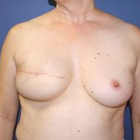
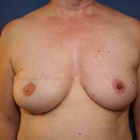
Front view
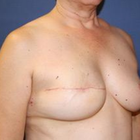
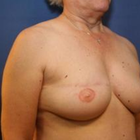
Half-side view
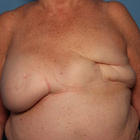
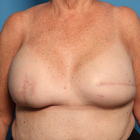
Front view
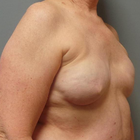
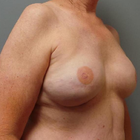
Half-side view
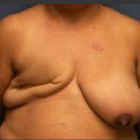
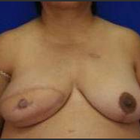
Front view
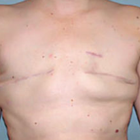
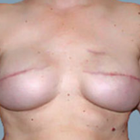
Front view
WHY US?
At Medijump, we're making medical easy. You can search, compare, discuss, and book your medical all in one place. We open the door to the best medical providers worldwide, saving you time and energy along the way, and it's all for FREE, no hidden fees, and no price markups guaranteed. So what are you waiting for?

Free

Best Price

Widest Selection

Risk-Free
What you need to know about Breast Reconstruction in Taiwan
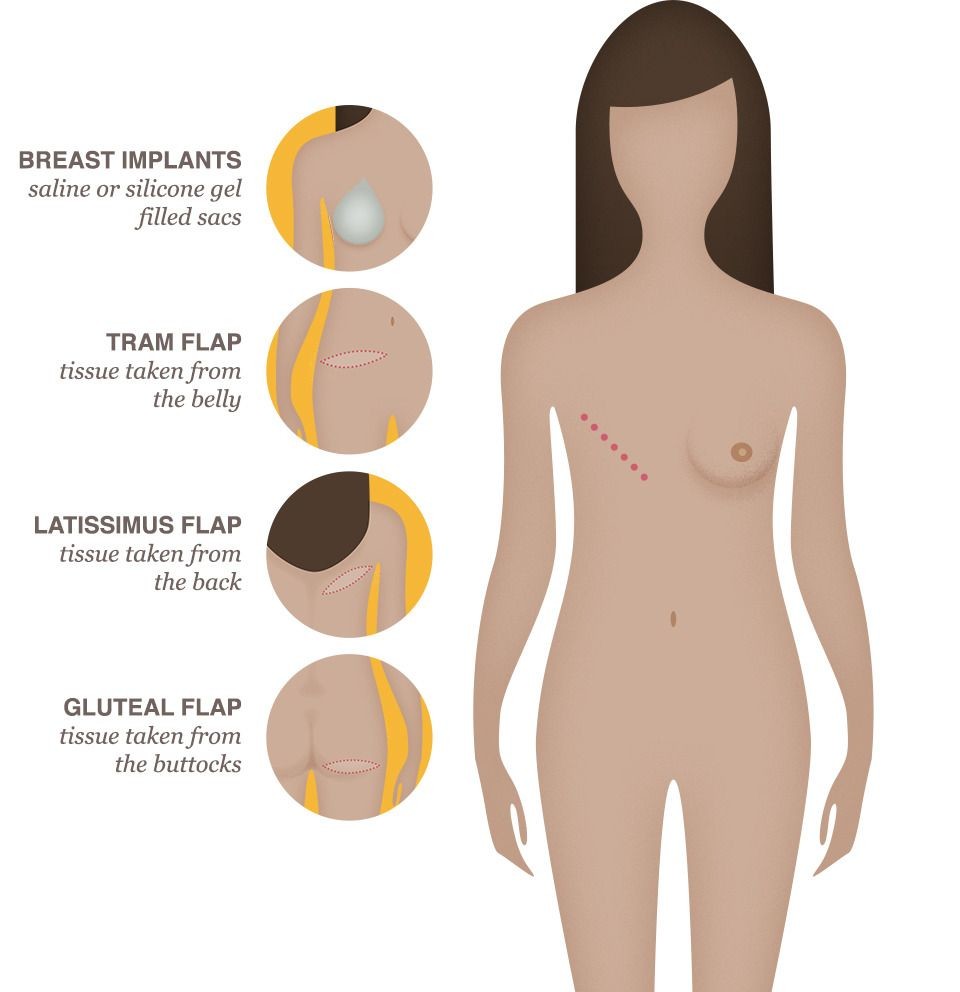
Breast reconstruction is a significant surgery undertaken to rejuvenate the physical form of a woman's chest after losing one or both breasts to cancer or another disease. In Taiwan, medical centres are well-equipped with top-tier talent in plastic surgery to facilitate this intricate procedure. Every woman's journey is different, and her treatment plan is personalized, considering her unique circumstances and needs.
It's heartening to know that breast cancer treatments like chemotherapy or radiation therapy aren't impeded by reconstruction. Moreover, this surgery doesn't spike the risk of cancer coming back. Undeniably, breast reconstruction is a major surgery with inherent risks, including chances of infection, complications with wound healing, and potential dilemmas related to implants.
What is the cost of Breast Reconstruction in Taiwan?
Undergoing surgery like Breast Reconstruction brings along a financial commitment. The expense varies extensively, depending on many factors like the complexity of the procedure, the medical professional performing the surgery, the hospital's facility, and the region, amongst others. Generally, the cost might range between $15,000 to $50,000, including multiple surgeries or intricate techniques within this estimate.
Thankfully, in many cases, insurance plans cover such surgical procedures, especially given mandates like the Women's Health and Cancer Rights Act of 1998 in the U.S. Still, out-of-pocket expenses associated with co-payment or deductibles can add up. It's recommended to navigate these aspects with your insurance provider and your chosen healthcare facility in Taiwan.
What does a Breast Reconstruction Procedure Involve?
Breast reconstruction generally happens in stages, starting with the most complex first, which may either occur at the same time as the mastectomy or later, based on the individual’s specific health conditions or treatment plan.
Two main techniques are employed in breast reconstruction. One is the use of an implant, saline, or silicone to recreate the breast shape. Two, autologous or flap reconstruction where tissue from the patient’s body like the abdomen or thigh is relocated to recreate the breast shape. The method selected is dependent on individual factors like the patient’s health, personal choice, cancer type, and stage.
After the primary surgery and post an adequate healing period, the surgeon performs a second procedure to recreate the nipple and areola. Later, to give it a natural look, the nipple-areola complex is tattooed. Remember that although it is a common procedure, complications might arise involving reaction to anaesthesia, bleeding, infection, poor healing or the need for further interventions.
How Long Should I Stay in Taiwan for a Breast Reconstruction Procedure?
Post-breast reconstruction surgery, patients typically stay in the hospital for two to five days. However, if the reconstruction was done immediately after the mastectomy, the stay could extend from three to six days.
Overall, a patient should expect to remain in Taiwan for approximately two weeks post-surgery. This allows enough time for necessary follow-ups and to address any complications, if they arise. As with any major surgical procedure, do not hasten the healing process.
What's the Recovery Time for Breast Reconstruction Procedures in Taiwan?
The recovery timeframe for breast reconstruction procedures in Taiwan varies from patient to patient. Generally, for implant-based procedures, patients may take about four to six weeks to recuperate before they return to normal routines. For more complex autologous techniques, particularly those using abdominal tissue, patients might require six to eight weeks for recovery.
Recovering patients need to temper their activities during this period. Avoid lifting heavy objects and defer strenuous exercise until your physician gives a clear signal. Medical assistance should be promptly sought if any discomforting symptoms like chronic pain, redness or swelling surface.
What's the Success Rate of Breast Reconstruction Procedures in Taiwan?
Medical success cannot just be measured in terms of complication-free postoperative progress or longevity of implants used in breast reconstruction. Patient satisfaction with their surgery, their psychological well-being following the operation, their perception of body image, and their quality of life post-surgery are equally important factors to consider. Studies indicate that between 85% to 90% of women who have undergone breast reconstruction are satisfied with the long-term results.
In Taiwan, dedicated hospitals and healthcare facilities strive to offer high-quality treatment, ensuring the best possible surgical outcomes using progressive technology and experienced professionals. Still, everyone's response to surgery varies, and outcomes depend on factors such as overall health, age, body type, and compliance with surgical advice.
Are there Alternatives to Breast Reconstruction Procedures in Taiwan?
Indeed, there are alternatives to breast reconstruction in Taiwan. The journey of every woman is unique and how she chooses to deal with the loss of a breast, or both, is a highly personal decision. Alternatives include:
- Breast Prostheses or Forms: They are silicone forms that imitate the appearance and feel of natural breast tissue. They come in diverse sizes, shapes and colours to closely match the woman's skin tone.
- Flat Closure: In this method, the surgeons sew up the chest wound smoothly, without constructing a breast mound. This option appeals to women who choose not to have more surgeries or body implants.
- Opting not to undergo reconstruction at all, also termed as "going flat: This method exhibits the woman's choice to live comfortably with her new body shape without artificial substitutes or further surgeries. It is a fully personal decision deserving respect and support.
Each of these options has pros and cons, and the choice depends on the woman’s personal preference, health status, lifestyle, and perception of her body. Regardless of the choice, it’s important to regularly monitor breast health and engage in practices that promote overall wellness.
What Should You Expect Before and After the Breast Reconstruction Procedure?
Before the surgery, comprehensive discussions with the surgeon will take place to understand treatment objectives, outcomes, and possible complications. Preoperative tests, lifestyle modifications, and nutritional advice may form a part of the preparatory process.
Postoperative care is equally important: discomfort, swelling, and bruising are normal and subside over time. Pain management strategies will be provided to help you manage discomfort effectively. Your surgeon will provide personalised guidance on caring for your surgical site, usage of medications, and physical activities.
What sort of Aftercare is Required for Breast Reconstruction Procedures in Taiwan?
The following points should be considered post-operation:
- Follow the instructions given by your doctor and take your medicines as and when prescribed.
- Consult a nutritionist for a diet plan. A healthy diet helps you recover faster.
- Do not wear a padded or underwire bra until allowed by your doctor.
- Use surgical bras in the early few days after the surgery.
- Avoid excessive unnecessary movement of your breasts.
- Do not lift heavy objects and children - it could stretch on your stitches.
- Change your bandage whenever it gets dirty. Germs can cause infection.
- Do not take a bath when the bandages are still intact. A wet bandage can also be the cause of infection.
- Abstain from sexual activity for at least 6 weeks.
- Take rest - give yourself time to recover.
How Do I Prevent Cancer from Recurring?
Preventing cancer recurrence largely revolves around a balanced, healthy lifestyle coupled with regular medical check-ups. Regular exercise, maintaining a healthy weight, and eating nutritiously can contribute to cancer prevention. Smoke cessation and limiting exposure to secondhand smoke are crucial for both prevention and postoperative recovery.
Regular breast self-examinations, as well as mammograms and follow-up visits, are critical for early detection of any recurrence. Stress management techniques like yoga, meditation, and spending time in nature can also play an essential role in overall health.
Your medical team in Taiwan is there to support you, offering advice tailored to your individual health status and medical history. Remember, proactive health checks are key to maintaining overall health and preventing the recurrence of diseases like cancer.
What is the ideal time to have Breast Reconstruction surgery after a Mastectomy in Taiwan?
The decision regarding when to have Breast Reconstruction following a Mastectomy in Taiwan is largely based on the individual's health status, treatment plan, personal preferences, and discussions with the oncology team. Breast reconstruction can be done at the time of mastectomy (immediate reconstruction) or at a later date (delayed reconstruction). Immediate reconstruction might offer psychological benefits and less overall surgery since both procedures are done together. Yet, if additional treatments such as radiation therapy are required post-mastectomy, opting for delayed reconstruction could be advisable to avoid risks posed by radiation to the new construct.
Remember that deciding on the timing of breast reconstruction is a personal choice and should be made in consultation with your healthcare providers. They can provide specific guidance based on your health condition and treatment plan.
How Will Breast Reconstruction in Taiwan Impact My Routine Mammograms and Breast Cancer Detection?
Breast reconstruction surgery may impact the way routine breast cancer screenings are conducted. After a mastectomy with or without reconstruction, women usually don't need routine screening mammograms on the treated side since all breast tissue has been removed. However, they would need routine mammograms for the untreated breasts.
If you've had reconstruction using your own body tissue, your surgeon or oncologist will guide you on whether or not you'll require mammograms on the reconstructed breast. Remember, mammograms can still be performed on reconstructed breasts, and self-breast exams should be a regular part of your health routine.
Whilst the information presented here has been accurately sourced and verified by a medical professional for its accuracy, it is still advised to consult with your doctor before pursuing a medical treatment at one of the listed medical providers
No Time?
Tell us what you're looking for and we'll reachout to the top clinics all at once
Enquire Now

Popular Procedures in Taiwan
Prices Start From $497

Prices Start From $208

Prices Start From $834

Prices Start From $500

Prices Start From $93

Prices Start From $85

Recommended Medical Centers in Taiwan for Breast Reconstruction

- Interpreter services
- Translation service
- Religious facilities
- Medical records transfer
- Medical travel insurance
- Health insurance coordination
- TV in the room
- Safe in the room
- Phone in the room
- Private rooms for patients available

- Interpreter services
- Translation service
- Religious facilities
- Medical records transfer
- Medical travel insurance
- Health insurance coordination
- TV in the room
- Safe in the room
- Phone in the room
- Private rooms for patients available

- Interpreter services
- Translation service
- Religious facilities
- Medical records transfer
- Medical travel insurance
- Health insurance coordination
- TV in the room
- Safe in the room
- Phone in the room
- Private rooms for patients available

- Interpreter services
- Translation service
- Religious facilities
- Medical records transfer
- Medical travel insurance
- Health insurance coordination
- TV in the room
- Safe in the room
- Phone in the room
- Private rooms for patients available

- Interpreter services
- Translation service
- Religious facilities
- Medical records transfer
- Medical travel insurance
- Health insurance coordination
- TV in the room
- Safe in the room
- Phone in the room
- Private rooms for patients available
Breast Reconstruction in and around Taiwan
About Taiwan
Whilst still a part of the Republic of China, the small island of Taiwan maintains a wealth of ancient Chinese culture and traditions mixed with modern-day Western inspirations. With its food-loving locals and award-winning whiskeys, Taiwan is a land of surprises. With 14 JCI accredited facilities in Taiwan, Taipei, the capital, is home to most, many of which are part of the University Hospitals and offer a range of specialist tertiary care. The country welcomes an ever-increasing number of medical tourists each year, many of which travel for Breast Reconstruction procedures. Medical Tourists mostly travel from the mainland or from within the region.
Popular parts of Taiwan
Taiwan is one of the most densely populated countries in the world with 23.5 million inhabitants. The country has amazed tourists with its dynamic cities, vibrant culture, interesting history, and incredible natural scenery.
- Taipei is the capital of Taiwan. It is the financial, political, and cultural center of the country. The city is influenced by Chinese culture as well as Japanese, Southeast Asian, and American. There are many things to enjoy in this city, such as delicious food in Rahoe Night Market, enjoy a bird’s eye view of Taipei from Taipei 101 Observatory, visit the incredible Chiang Kai-shek Memorial Hall, and be inspired by the city’s many museums.
- Kaohsiung is Taiwan’s largest port. It’s an urban city that embraces its cultural venues. The most popular tourist destination is the Lotus Pond, a beautiful artificial lake filled with lotus plants and surrounded by temples. Tourists can also visit Pier-2 Art Center, see the Dome of Light, explore Cijin Island, or visit the Fo Guang Shan Monastery.
- Tainan, as the oldest city in Taiwan, has a fascinating culture and history. For historical sights, tourists can visit the Anping Fort, Anping Tree House, or learn Taiwanese embroidery. The city is now filled with quaint cafes tucked within the alleys.
- Hualien has breathtaking natural beauty. It’s the perfect place for tourists who want to get away from busy cosmopolitan cities. Visit the Eternal Spring Shrine, check out the popular Taroko Gorge, fall in love with Qingshui Cliffs, hike the Shakadang trail, and eat the amazing food.
- Taichung is a lively city located in the west-central part of the island. Taichung offers many unique things to see and do. National Taichung Theater will leave tourists in awe by its beautiful architecture. National Taiwan Museum of Fine Arts, Rainbow Village, Gomei Wetlands, Miyahara, and Fengjia Night Market are among the most popular tourist attractions.
Weather and Climate in Taiwan
- Spring starts in March and lasts until May. The average temperature is between 18°C and 24°C. Early rain showers and thunderstorms begin in this season. Heavy rainfall hit the island around mid-May.
- Summer can get extremely hot and humid with an average temperature of 27°C to 30°C. The season starts from June to August. Summer is also the wet season and typhoons are a real possibility especially in July and August. This is the peak season for tourism.
- Autumn has pleasant weather conditions. The rains decrease and the heat will drop. The season starts from September to November with an average temperature of 21°C to 27°C.
- Wintertime is from December to February and it is the coolest and driest season of the country. The average temperature drops to 16°C - 18°C.
Getting Around in Taiwan
Taiwan Taoyuan International Airport is the main airport in the country, located about 40km west of Taipei in the Dayuan District, Taoyuan. It is the hub for 6 airlines including two of Taiwan’s major airlines, China Airlines, and EVA Air. It has international connections with almost every country in the world. The airport serves major airlines as well as budget airlines such as Air Asia, Eastar Jet, Air Busan, and Tiger air Taiwan. There are other airports that serve international and domestic flights such as Taichung Airport, Tainan Airport, Siaogang Airport, and Taipei Songshan Airport.
Tourists arriving at Taiwan Taoyuan International Airport have a variety of transport options such as buses, taxis, car rentals, and Taoyuan Airport MRT. Buses are the cheapest option to get to the city center. Tourists who head towards the Taipei 101 area should take Bus no. 1960, while bus no. 1819 and 1961 will take tourists near Taipei Main Train Station.
Taxis are available in Terminal 1 and Terminal 2’ arrivals lobby. The fare is based on a meter and will usually cost around 1,200 TWD (40.50 USD). A journey to the city center takes about 50 minutes and taxis operate for 24 hours.
Taoyuan Airport MRT is the fastest way to reach Taipei’s city center. It will take tourists to Taipei Main Station in 35 minutes and costs 160 TWD (5.40 USD). The MRT operates from 6.05 am to 11.35 pm.
Tourists can travel around Taiwan by normal train (TRA). It is an affordable option; a train ride from Taipei to Kaohsiung costs around 845 TWD. Tourists who need a quicker travel time can opt for Taiwan High-Speed Train (HSR). The train travels from Taipei to Kaohsiung in just 90 minutes.
The cheapest way to travel around Taiwan is by bus. Buses are readily available and will reach small villages and mountain resorts. The country provides Taiwan Tourist Shuttle bus system that offers 42 routes to more than 100 tourist destinations.
Taxis and MRT is the best way to travel around big cities. In Kaohsiung, getting around in a bicycle is the best way to explore as it is one of the most bicycle-friendly cities in Taiwan.
Tourist Visas in Taiwan
Citizens of 65 countries do not require a visa to visit Taiwan and can stay for up to 90 days. Nationals of Turkey can obtain a visa on arrival valid for 30 days. It is best to check to the nearest embassy or consulate for visa requirements. Since January 2016, Taiwan offers an eVisa program for 18 countries including Saudi Arabia, Peru, Oman, and United Arab Emirates.
Additional Information
- Local Currency: The local currency is the New Taiwanese Dollar (TWD). 1 USD converts to 31.98 TWD.
- Money & Payments: ATMs are widely available except in villages. They’re usually located in convenience stores and banks. Credit cards are accepted in hotels and top-end restaurants. Always carry cash because small stalls and night market joints only accept cash. Tipping is not mandatory but is still appreciated.
- Local Language: The national language is Hakka, Mandarin, Taiwanese Hokkien, Matsu, Formosan languages, and sign language. English is common, especially in the tourism area. English is spoken more in Taipei.
- Local Culture and Religion: Taiwan has diverse religious beliefs. Buddhism and Taoism are two of the biggest religion in the country followed by Christianity, Yiguandao, Tiandism, Miledadao, Zailiism, and Xuanyuanism.
- Public Holidays: Taiwan celebrates Chinese New Year for a week in February. The country hosts several festivals such as Lantern Festival in February, Dragon Boat Festival in June, and Mid-Autumn Festival in September.
Popular Searches
- Plastic Surgery in Thailand
- Dental Implants in Thailand
- Hair Transplant in Thailand
- Breast Augmentation Thailand
- Gastric Sleeve in Thailand
- Gender Reassignment Surgery in Thailand
- Laser Hair Removal in Bangkok
- Botox in Bangkok
- Dermatology in Bangkok
- Breast Augmentation in Bangkok
- Coolsculpting in Bangkok
- Veneers in Turkey
- Hair Transplant in Turkey
- Rhinoplasty in Turkey
- Stem Cell Therapy in Mexico
- Rhinoplasty in Mexico
- Liposuction in Mexico
- Coolsculpting in Tijuana
- Rhinoplasty in Korea
- Scar Removal in Korea
- Gastric Sleeve in Turkey
- Bone Marrow Transplant in India
- Invisalign in Malaysia
- Plastic Surgery in the Dominican Republic
- Tummy Tuck in the Dominican Republic
- Plastic and Cosmetic Surgery in Poland
- Rhinoplasty in Poland
- Hair Implant in Poland
- Dental Implants in Poland
- IVF in Turkey

